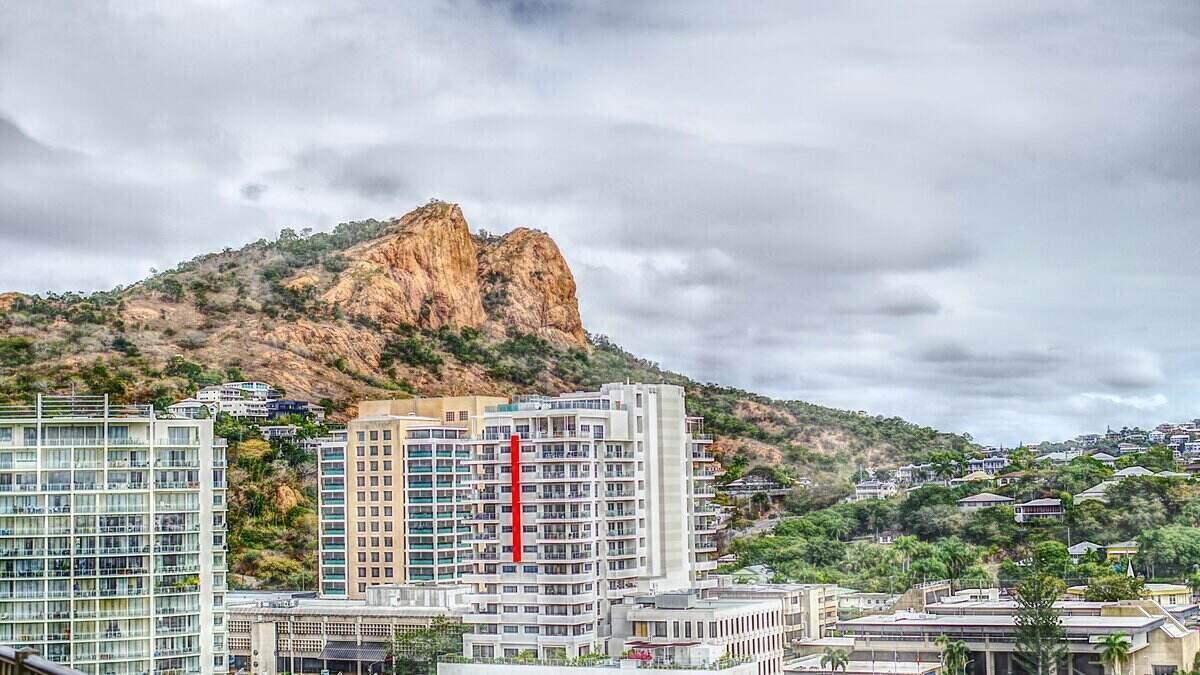According to a NAB survey in 2022, nearly 5% of the Australian property market is owned by overseas investors. Foreign ownership is a bit of a controversial topic - many people think foreigners should be banned from owning Australian property. In April 2025, the Government introduced a temporary block on foreigners buying established dwellings that will last at least two years.
For the moment, foreign investors may still be able to purchase new dwellings or vacant land (and established dwellings in some exceptional circumstances) , but there is still a bit of a process they need to go through before they are approved. Per Treasury's Foreign Investment website, Australia welcomes foreign investment provided it is in the national interest, which is enforced by law.
Can foreigners buy investment property in Australia?
Foreigners are allowed to buy Australian property provided they receive approval from the Foreign Investment Review Board (FIRB). Anyone that isn't an Australian citizen or permanent resident needs to make an application with the FIRB to get permission to buy. These are reviewed on a case by case basis to ensure they are not contrary to the national interest, and ensure the investment is likely to bring some benefit to Australia. For example, foreigners can generally buy newly constructed dwellings with few restrictions, since this contributes to Australia's housing supply.
With that principle in mind, the Government tends to take the following approaches to specific investment proposals:
New dwellings
According to ATO guidelines, an application to buy a newly built property, provided its not a single dwelling built to replace a demolished one, is likely to be approved. If you're a budding foreign investor, your best bet is probably buying a new dwelling directly from a developer.
Vacant land
Investors tend be approved to buy vacant land provided construction of a dwelling is planned to be completed within four years.
Established dwellings
Until at least 31 March 2027, foreigners are generally banned from buying established dwellings in Australia. However, in some cases these purchases may be approved providing it 'significantly increases Australia's housing stock'. The following conditions apply:
-
The property must be vacant at settlement.
-
No part of the existing dwelling is occupied from settlement until construction of the additional dwellings is complete.
-
At least 20 additional dwellings are being built on the land.
-
Construction of all dwellings must be completed within 4 years from the date of approval.
-
You must submit evidence of completion of construction to the ATO within 30 days of receiving it. That is, a certificate of fitness for occupancy or use, final occupancy, or builder's completion certificate.
-
You must not sell, transfer or otherwise dispose of your interest in the property before construction is complete.
-
Once construction of the new dwellings is complete you must rent or sell at least one of the dwellings to an independent third party.
Buying a home to live
Temporary Australian residents are able to apply to purchase one established dwelling to live in while they are in Australia. However, the home must be sold once they leave unless they become a citizen or permanent resident.
What is the application process for foreign investors?
Foreigners looking to invest in Australian property need to apply for approval with the Australian Taxation Office (ATO). This is where the application is assessed, based on the type of dwelling and how the investment will benefit Australia's housing stock. Once an application is approved, it also needs to be registered on the Register of Foreign Ownership of Australian Assets.
Foreigners are required to have approval from the ATO prior to acquiring an interest in a property. An interest includes things like signing an unconditional contract or an option that provides the right to purchase a property at an agreed time in the future.
Should you believe you may lose the home to another buyer by waiting for approval, you can enter into a contract provided it is conditional upon receiving approval.
The application for approval is as follows:
-
Go to the 'Online Services for foreign investors' portal on the Australian Tax Office (ATO) website.
-
Create a MyGov account if you don't already have one.
-
Use the MyGov app to access 'Online services for foreign investors' and lodge an application.
-
Provide details of the dwelling you wish to purchase, as well as information about you or the entity intending to acquire Australian property. Refer to the Foreign Investment Application Checklist to ensure your application is complete.
-
Sign and submit the application, paying the appropriate fee.
-
Wait to hear back on the decision of your application. There is a statutory period of 30 days available for the decision to be made and a further 10 days to notify the applicant of the outcome.
-
If the application is successful, the property will also need to be registered on the Register of Foreign Ownership of Australian Assets. This can also be done through 'Online Services for foreign investors.' Registering an asset is free.
Fees for foreign property investors in Australia
There is a fee payable as part of the application process, with the amount dependent on the purchase price of the dwelling. For properties purchased before 30 June 2025, the following application fees apply.
| Property/Land Value | Fee for Established Dwellings | Fee for New Dwellings or Vacant Land |
|---|---|---|
| Less than $75,000 | $12,900 | $4,300 |
| $1 million or less | $44,100 | $14,700 |
| $2 million or less | $88,500 | $29,500 |
| $3 million or less | $177,000 | $59,000 |
| $4 million or less | $265,500 | $88,500 |
| $5 million or less | $354,000 | $118,000 |
| $6 million or less | $442,500 | $147,500 |
| $7 million or less | $531,000 | $177,000 |
| $8 million or less | $619,500 | $206,500 |
| $9 million or less | $708,000 | $236,000 |
| $10 million or less | $796,500 | $265,500 |
| $11 million or less | $885,000 | $295,000 |
| $12 million or less | $973,500 | $324,500 |
| $13 million or less | $1,062,000 | $354,000 |
| $14 million or less | $1,150,500 | $383,500 |
| $15 million or less | $1,239,000 | $413,000 |
| $16 million or less | $1,327,500 | $442,500 |
| $17 million or less | $1,416,000 | $472,000 |
| $18 million or less | $1,504,500 | $501,500 |
| $19 million or less | $1,593,000 | $531,000 |
| $20 million or less | $1,681,500 | $560,500 |
| $21 million or less | $1,770,000 | $590,000 |
| $22 million or less | $1,858,500 | $619,500 |
| $23 million or less | $1,947,000 | $649,000 |
| $24 million or less | $2,035,500 | $678,500 |
| $25 million or less | $2,124,000 | $708,000 |
| $26 million or less | $2,212,500 | $737,500 |
| $27 million or less | $2,301,000 | $767,000 |
| $28 million or less | $2,389,500 | $796,500 |
| $29 million or less | $2,478,000 | $826,000 |
| $30 million or less | $2,566,500 | $855,500 |
| $31 million or less | $2,655,000 | $885,000 |
| $32 million or less | $2,743,500 | $914,500 |
| $33 million or less | $2,832,000 | $944,000 |
| $34 million or less | $2,920,500 | $973,500 |
| $35 million or less | $3,009,000 | $1,003,000 |
| $36 million or less | $3,097,500 | $1,032,500 |
| $37 million or less | $3,816,000 | $1,062,000 |
| $38 million or less | $3,274,500 | $1,091,500 |
| $39 million or less | $3,363,000 | $1,121,000 |
| $40 million or less | $3,451,500 | $1,150,500 |
| More than $40 million | $3,514,800 | $1,171,600 |
Source: FIRB
The ATO also grants what are known as exemption certificates so investors don't need to pay the application fee every time they put an offer on a property. The exemption certificate will cost the same as the above fee, and will specify the type of property, the state or territory that can be purchased in, as well as a limit on the value.
A fee also applies to vary an existing foreign investment approval, of $4,200 (for a simple variation, considered immaterial or minor) or $28,200 (a complex variation), although fees are also capped at the original fee. For example, if you are looking for a complicated amendment to an application that originally cost $14,100, you will be charged $14,100 for the variation rather than $28,200.
From July 1st 2023, there is also an initial application fee for property developers applying for a new or near new dwelling exemption certificate of $60,600.
When a property owned by a foreign investor is left vacant or not "genuinely available for rent" for more than half the year, a vacancy fee applies. This is equal to double the application fee for the property or land in question.
If a foreigner acquires property without approval they may be fined up to $3,330,000 or face up to ten years in prison. The same fines for individuals apply if a temporary resident fails to sell their property when they stop living there or if they don't start construction on land within the required four year period.
Exemptions for Australian residents abroad
If you're an Aussie abroad, the rules around foreign investment probably won't apply to you. Those exempt are:
-
Australian citizens
-
New Zealand citizens
-
Australian permanent visa holders
-
Foreigners purchasing property as joint tenants who have a spouse which satisfies one of the above.
Expat home loans
Even as an Australian citizen, it can be a bit more challenging to buy Australian property from outside of the country. While many lenders are willing to work with non-residents, you might find there are more limitations to how much you can borrow and how high the Loan to Value Ratio (LVR) can be. However, there are some lenders that offer specialised services for Australian expats. Examples include:
-
HSBC Expat offers services for expatriates
-
loans.com.au have a product specifically for Aussie citizens overseas called the Ex-Pat home loan
Note: Savings.com.au and loans.com.au are both associates of the Firstmac Group.
Read more: Expat Home Loans
How much Australian property is owned by foreign investors?
For transparency, the Foreign Investment Review Board (FIRB) established the Register of Foreign Ownership of Residential Land. The most recent period captured is from July 1st 2022 to June 30th 2023.
During the 22/23 financial year:
There were 5,360 Australian properties bought by foreign investors, valued at $4.9 billion
Of these properties, 82.7% were in Victoria, Queensland or New South Wales
New dwellings and vacant land made up 66% of the total
1,119 properties were sold by foreign owners, with a total value of $1.0 billion
Getting a home loan in Australia as a foreigner
Obtaining a home loan to buy Australian property as a non citizen or permanent resident can be difficult. Many lenders require all prospective borrowers to be either an Australian citizen or permanent resident. Lending institutions often aren't set up to appropriately assess and deal with overseas borrowers, so they are typically looked at as higher risk. Those who do offer home loans to foreigners often implement stricter restrictions than they would typically impose on Australian borrowers. For example, foreigners may be required to front a larger deposit for the property, greater than the typical 20% threshold usually recommended.
One option worth exploring is investment home loans with international banks that operate in Australia and your country of residence. Examples include:
-
HSBC
-
CitiBank
-
Bank of China
Savings.com.au 's two cents
For the time being, it's extremely difficult for foreigners to buy established Australian property with the restrictions in place. Many people welcomed this two year ban, citing falling homeownership rates and property prices spiralling out of control. However, foreign investors play a small, but important role in the supply side of the property market. Some developers have raised concerns that the extra restrictions on foreign buyers could hurt residential construction levels, and ultimately affordability.
For now, foreign investors can still pursue vacant land and newly purchased dwellings. If you're a foreigner looking to buy down under, it's worth speaking to a local professional who can help ensure you're getting a good deal and walk you through the process.
First published on October 2024
Image by Tania Richardson via Unsplash
Disclaimers
The entire market was not considered in selecting the above products. Rather, a cut-down portion of the market has been considered. Some providers' products may not be available in all states. To be considered, the product and rate must be clearly published on the product provider's web site. Savings.com.au, yourmortgage.com.au, yourinvestmentpropertymag.com.au, and Performance Drive are part of the Savings Media group. In the interests of full disclosure, the Savings Media Group are associated with the Firstmac Group. To read about how Savings Media Group manages potential conflicts of interest, along with how we get paid, please click through onto the web site links.

Ready, Set, Buy!
Learn everything you need to know about buying property – from choosing the right property and home loan, to the purchasing process, tips to save money and more!
With bonus Q&A sheet and Crossword!



 Bea Garcia
Bea Garcia
 Denise Raward
Denise Raward
 Harry O'Sullivan
Harry O'Sullivan
 Aaron Bell
Aaron Bell


